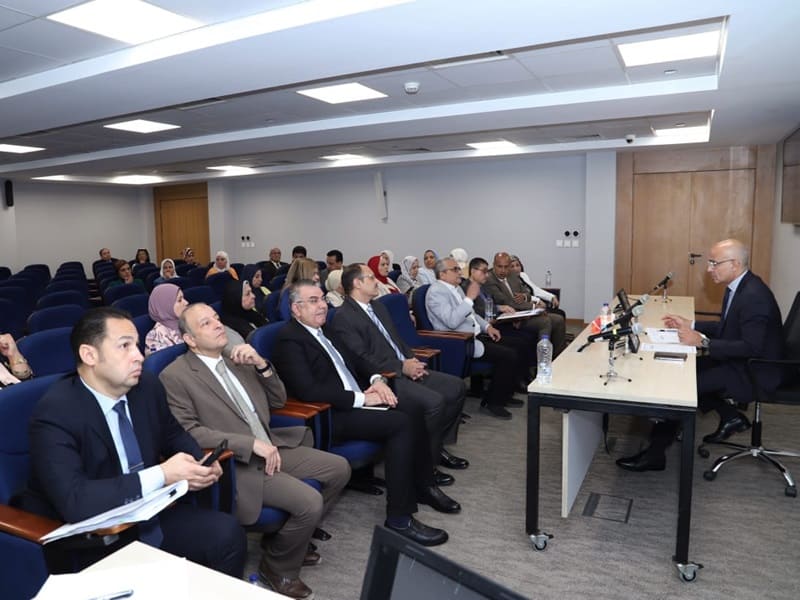Ain Shams University President chairs the second session of the Education and Student Sector Council for the academic year 2024-2025
Prof. Mohamed Diaa Zain El-Abedeen, President of Ain Shams University, chaired this morning the second session of the Education and Student Sector Council for the academic year 2024-2025, in the presence of education deputies and students in the university's faculties and council members.
At the beginning of the session, Prof. Mohamed Diaa welcomed the attendees, expressing his appreciation for the efforts made by the agents and their assistants to ensure the smooth running of the educational process.
He praised the efforts of the education sector and students during the events to welcome the new academic year, expressing his appreciation for the prominent role played by the sector in supporting the educational process and motivating students, hoping that the new year would be full of more successes and achievements.
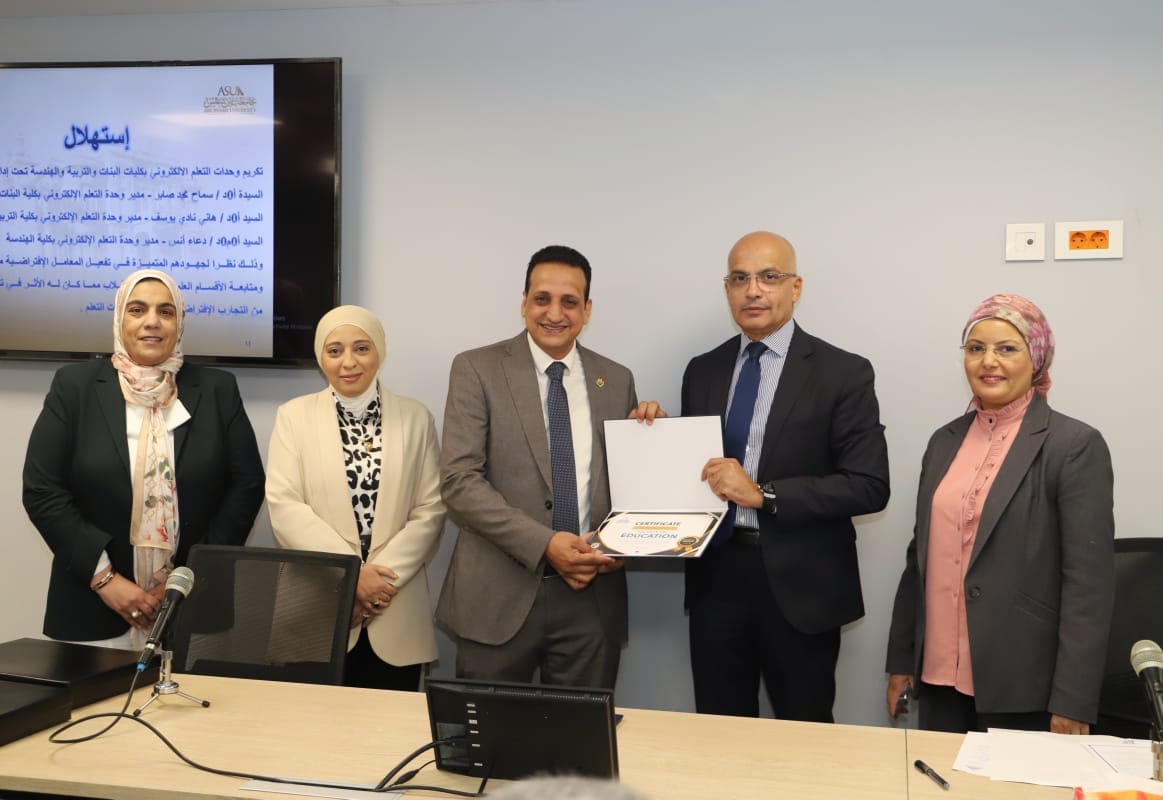 |
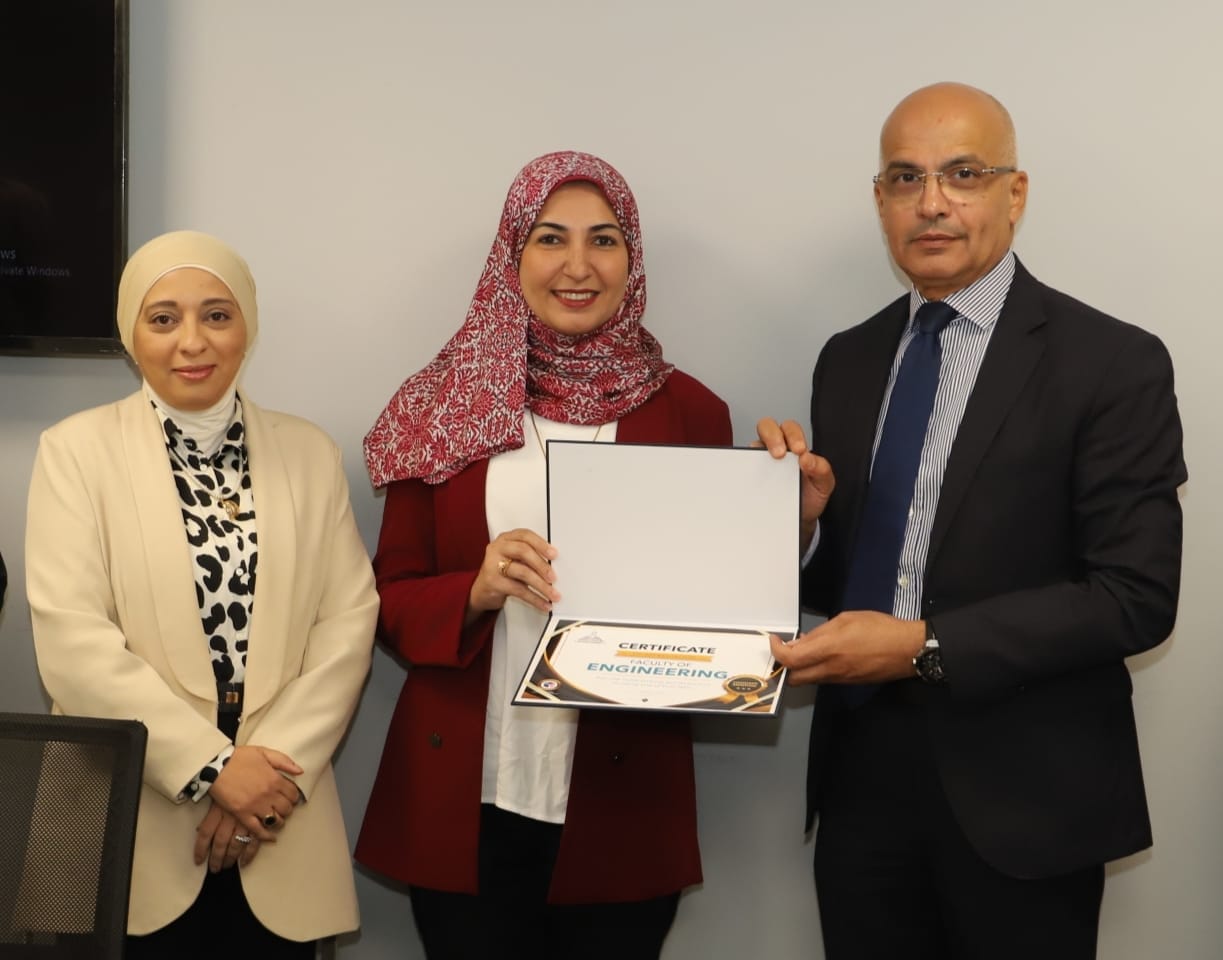 |
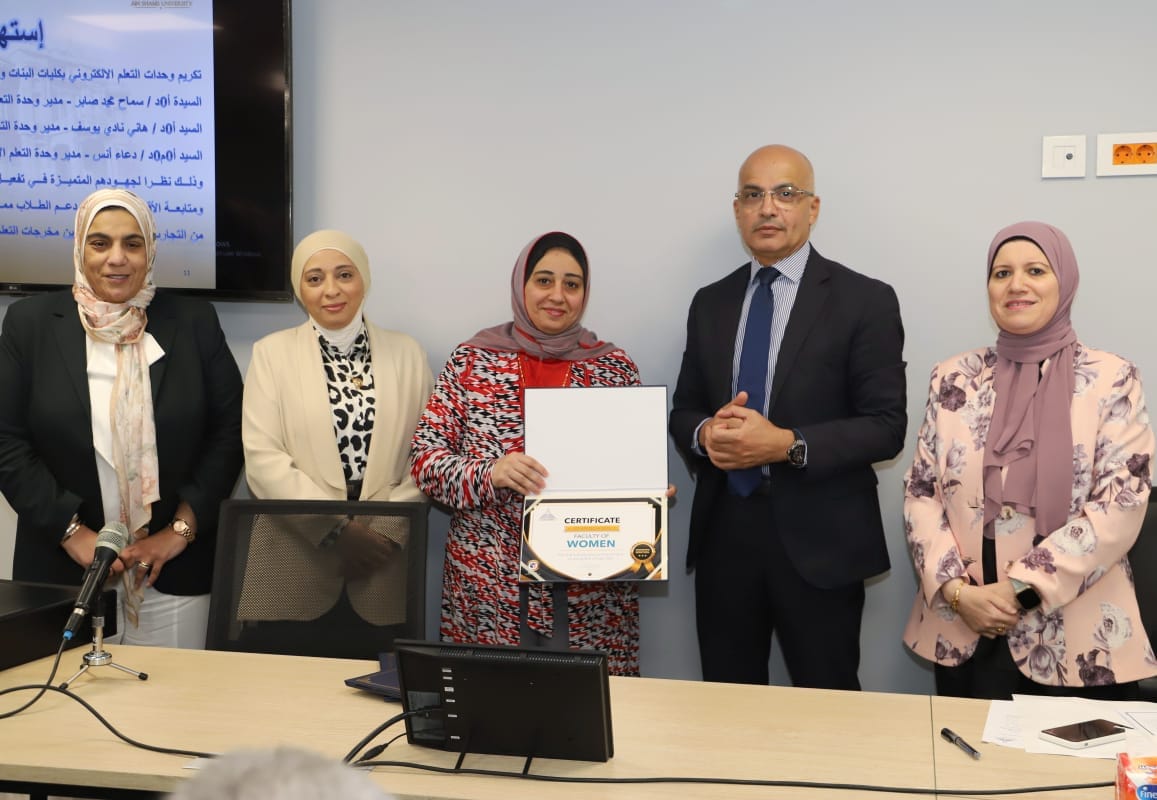 |
||
The Council honored the directors of e-learning units in the Faculty of Girls, Education and Engineering for their distinguished efforts in activating the performance of virtual laboratories by supporting and following up on scientific departments and supporting students, which had an impact on maximizing the benefit from virtual experiments and improving learning outcomes. This honor came in appreciation of their role in supporting and following up on scientific departments and providing the necessary support to students, which contributed to enhancing the benefit from virtual experiments and improving the outcomes of the educational process.
And in order to activate the performance of virtual laboratories that provide more than 185 virtual experiments in the fields of chemistry, physics and biology for students of the university's faculties through integration with the ASU2Learn e-learning system.
During the session, Prof. Mohamed Diaa stressed the university’s keenness to care for students with special needs and students in the educational integration system, and called on faculties to provide support to them through the university’s student care centers, in coordination with the Ministry of Social Solidarity to provide the necessary resources of trainers and sign language interpreters.
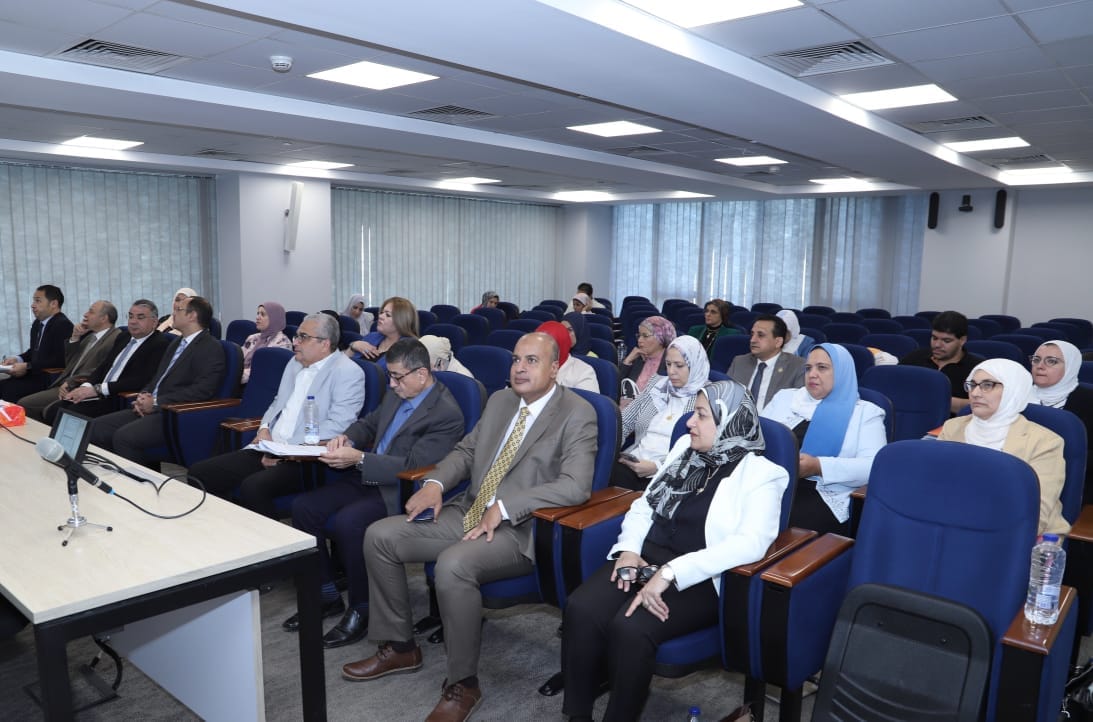 |
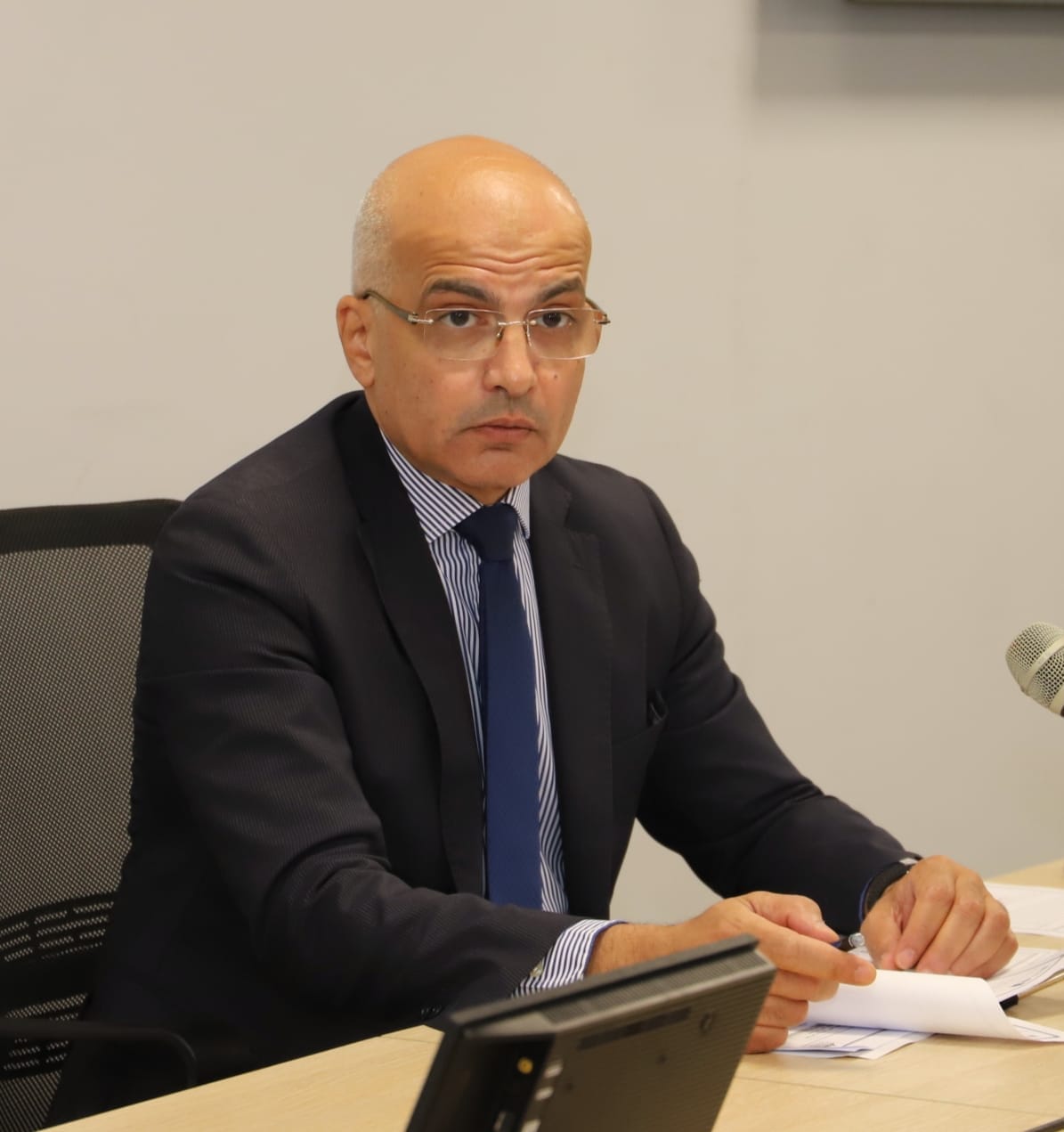 |
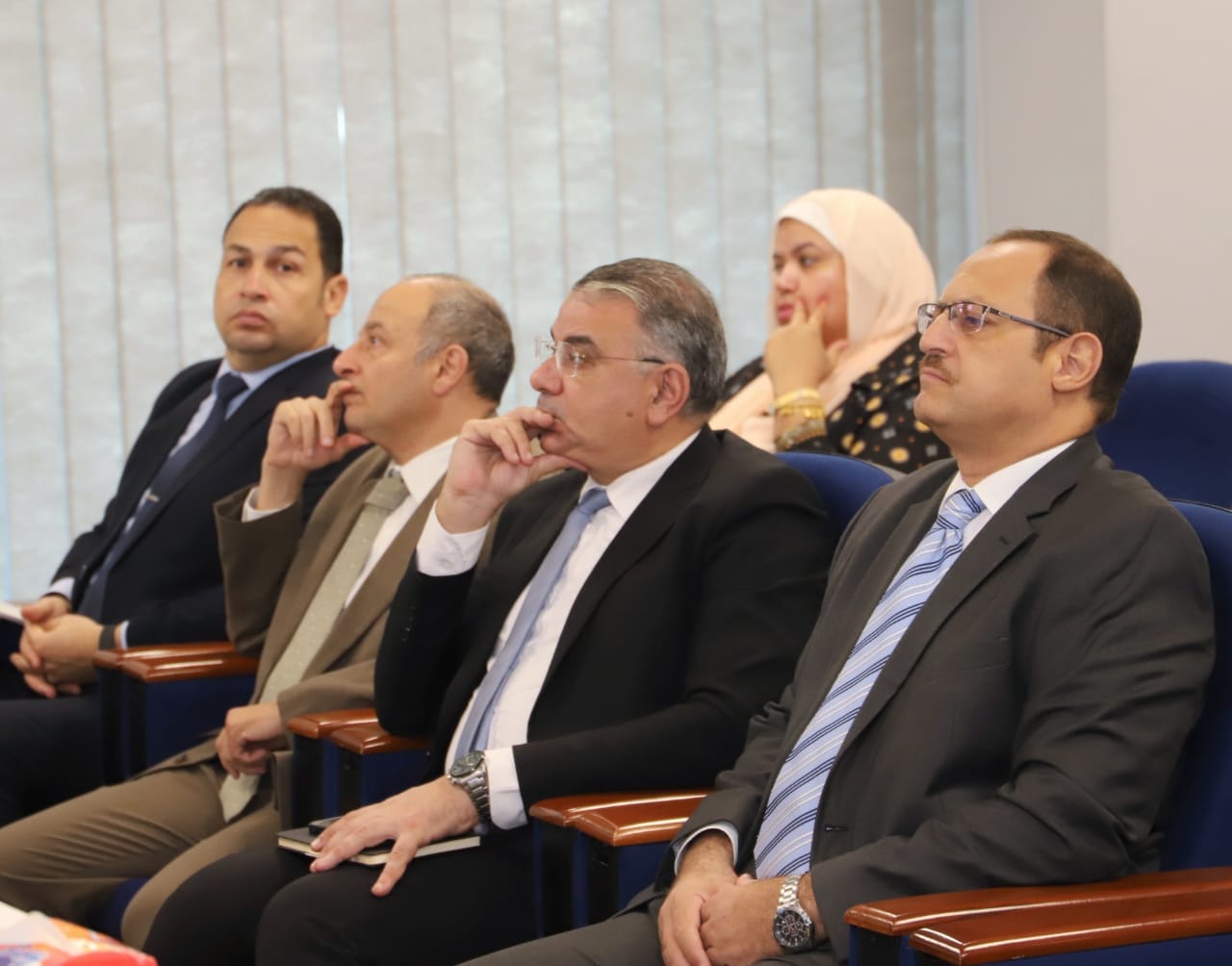 |
||
The university president stressed that “education is a right guaranteed to all” through launching an electronic program to convert spoken Arabic into written language to serve deaf and hard of hearing students, with the Student Disability Service Center being directed to develop traditional learning methods and provide flexibility according to the type of disability, in addition to providing diverse educational options that suit the needs and abilities of each student through the use of modern technology such as computer programs, applications and assistive devices to facilitate the learning process.
In order for the sector administration to ensure accessibility for people with special needs and integrate them with their peers, the gym is opened to all students, especially students with special needs, with specialized supervision provided to train and protect them.
His Excellency also referred to the launch of the Ministry of Social Solidarity's digital platform "Mawadda" to experiment with distance learning in universities for a year, with the aim of providing scientific content and training students.
In the context of activating the teaching of human rights within the “Society Issues” course, the Council discussed the necessity of selecting faculty staff with experience and practical knowledge to enhance students’ understanding of these concepts, while enhancing cooperation with civil society organizations and the National Council for Human Rights.
The Council also stressed in its topics the importance of linking the curricula of general and technical education and the transition to the green economy to develop the available skills to meet the expected demand for green job opportunities, with a recommendation to study the addition of study programs that focus on the green economy and environmental conservation in all fields to work on achieving the goals of sustainable development.


.svg)

